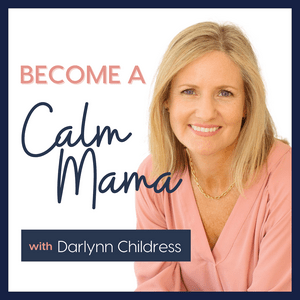Digital Detox Made Easy with Molly DeFrank
If you’re feeling like your family could use a break from screens and a reset, this is the episode for you. You may remember a podcast I recorded last year about how to do a digital detox. Well, that episode was based on an amazing book called Digital Detox: The Two-Week Tech Reset for Kids, and I am so thankful to have the author, Molly DeFrank, here with me today.You’ll Learn:Why letting go of control can actually help you find solutionsOur real-life experiences with digital detoxes in our own familiesHow to help kids manage their boredom and big feelings without screensThe 4-step method to a digital detoxMolly normalizes tech overuse (it’s not just you!) and lays out a simple, accessible way for you to give your kid a break from digital input, reset their nervous system, and allow your family to become a bit more whole and integrated. You’ll love our conversation and hearing Molly’s perspective.------------------------------------------Molly DeFrank is a mom to six children, ages 8 to 15, and the author of two parenting books, including Digital Detox: The Two-Week Tech Reset for Kids. She lives in California and has helped thousands of families break free from digital dependence. The State of Screen UseI often think of the pandemic as “letting the cat out of the bag” when it comes to screens. Even for slow tech families, school was online and our kids were spending way more time on screens. So now, 5 years later, our kids are struggling and we’re seeing a lot of families doing some course correction.Molly shared that the vast majority of parents say that their kids’ screen use is their biggest parenting struggle and that “8 to 12 year-old kids are spending 40 hours per week on digital entertainment…13 to 18 year-olds are spending 50 hours a week. Our kids are spending the same amount of time as having a full time job being digitally entertained.”Molly was heavily influenced by Dr. Victoria Dunckley, who coined a new condition called Electronic Screen Syndrome that is brought on by too much digital entertainment. It can disguise itself as ADHD, bipolar disorder, or OCD, when it’s really just the adrenaline, cortisol, and dopamine that is hijacking their brains. She saw so much of this that she decided to no longer diagnose a new client until they had undergone a digital detox. And most of the time, symptoms were resolved and medication was not needed. That’s how powerful this is. Some of these symptoms that come with screen overuse include irritability, aggression, low frustration tolerance, problems sleeping, and inattentiveness.Parents know that something needs to change, but they don’t want to deal with the fallout and tantrums of reducing or taking away screens. I know you’ve experienced this. The timer goes off, and the monster comes out. The negotiations (just 5 more minutes, pleeeease) and big feelings begin. This is purely dysregulation from the transition from stimulation from that device to non stimulation. I call this the boredom gap, and believe it or not, there is so much hope and freedom on the other side. Benefits of a Digital DetoxMolly wants us to know that a detox doesn’t mean you’re signing up for 2 weeks (or forever) of screen tantrums. In fact, it’s quite the opposite. She says, “You’re actually getting your kids back.” A detox comes with benefits to your child's creativity, mental health, social life, and academics, as well as your relationship with them. In fact, every parent she knows who has...


